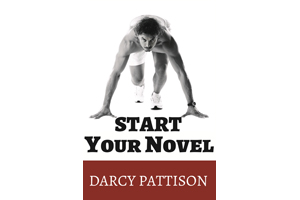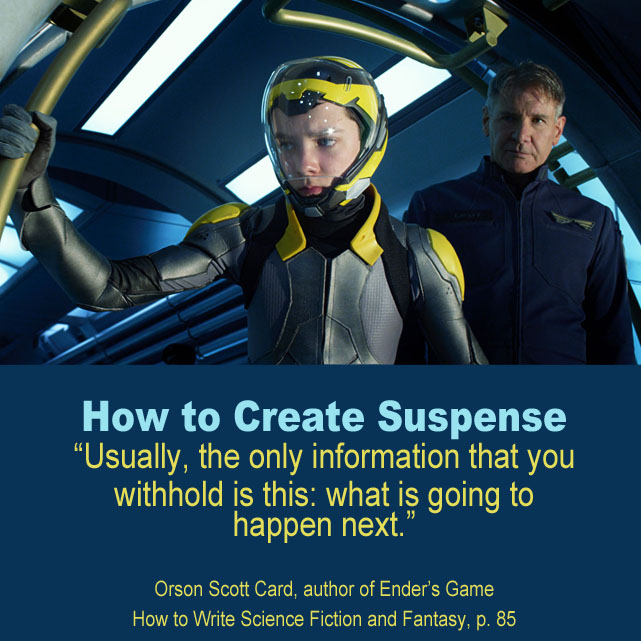 If she could turn back time . . .
If she could turn back time . . .
she'd probably not tick off
the house spirit.
Seconds by Bryan Lee O'Malley. Ballantine, 2014, 336 pages.
Viewing: Blog Posts Tagged with: SFF, Most Recent at Top [Help]
Results 1 - 21 of 21
Blog: Emilyreads (Login to Add to MyJacketFlap)
JacketFlap tags: fiction, graphic novel, adult, haiku, liked it, been caught stealing, hipster, SFF, Add a tag
Blog: Emilyreads (Login to Add to MyJacketFlap)
JacketFlap tags: fiction, young adult, mystery, haiku, book crush, SFF, Add a tag
 CRAZY HOT GHOST ACTION!
CRAZY HOT GHOST ACTION!
Or, Why You Might Not Want
to Visit UK.
The Shadow Cabinet (Shades of London #3) by Maureen Johnson. Putnam, 2015, 400 pages.
Blog: Emilyreads (Login to Add to MyJacketFlap)
JacketFlap tags: fiction, adult, haiku, book crush, dirty parts, liked it, great jacket, technology can be evil, SFF, Add a tag
 I didn't quite get
I didn't quite get
how the time travel worked, but
I didn't quite care.
Landline by Rainbow Rowell. St. Martin's Press, 2014, 320 pages.
Blog: Emilyreads (Login to Add to MyJacketFlap)
JacketFlap tags: fiction, middle grade, haiku, book crush, liked it, certain humiliation, SFF, Add a tag
 Some prior knowledge
Some prior knowledge
is helpful, but you'll still root
for Tip and J.Lo.
Smek for President by Adam Rex. Disney, 2014, 272 pages.
Blog: Emilyreads (Login to Add to MyJacketFlap)
JacketFlap tags: fiction, graphic novel, middle grade, haiku, book crush, liked it, great jacket, SFF, Add a tag
 My favorite space
My favorite space
pioneer girl gets a fitting
conclusion. Well done.
Return of Zita the Spacegirl by Ben Hatke. First Second, 2014, 240 pages.
Blog: Darcy Pattison's Revision Notes (Login to Add to MyJacketFlap)
JacketFlap tags: writing tip, suspense, science fiction, fantasy, orson scott card, ender's game, Novel Revision, sff, Add a tag
Now available!

Here’s a quote from Orson Scott Card, the author of Ender’s Game:
So as you look at your bogged down first draft, look to see how much of your effort is spent on withholding information, and then examine whether your reader has any reason to care about what’s going on as long as that information is withheld. Most novice writers imagine that this is how suspense is created–by hodling back key information from the reader. But that is not so. Suspense comes from having almost all the information–enough information that the audience is emotionally involved and cares very much about that tiny bit of information left unrevealed.
Usually the only information that you withhold is this: what is going to happen next.
–Orson Scott Card. How to Write Science Fiction and Fantasy, p. 85.
Blog: Wands and Worlds (Login to Add to MyJacketFlap)
JacketFlap tags: sciencefiction, cybils finalists, sff, hard science fiction, parallel universes, buffer, young adult books, science fiction, cybils, book review, Add a tag
Planesrunner
Everness, Book Oneby Ian McDonald
I decided to try a new format for my reviews. I hope this is a useful format.
Plot: Everett Singh's dad, a quantum physicist, is kidnapped off the street in view of Everett by three men in a black car. Later that night, Everett gets a message from his father containing a mysterious app, with only the note "For you only, Everett." Turns out that his dad has been working on a scientific project seeking physical proof of parallel universes, and the app is a map of all the known universes, the only one of its kind in existence. Now Everett is on the run from agents of the Plenitude, an alliance of the known universes. They want the map, called the Infundibulum, and will stop at nothing to get it. But Everett has other plans, and he uses the Infundibulum to travel to an alternate London in a daring attempt to rescue his dad.
Notable Characters:
- Everett Singh. Teen boy who is as good at cooking as he is at math, and not afraid to use either in pursuit of his goal. Punjabi, or at least half Punjabi (his dad is Punjabi, but I never figured out if his mom is). Authentic teen male voice.
- Sen Sixsmyth. Fearless teen girl with an attitude and a love for "bona" tech. Airship pilot in an alternate London.
- Captain Anastasia Sixsmyth. Sen's adoptive mother. No-nonsense airship captain. Strict but compassionate, not afraid of a fight.
Worldbuilding: Excellent! The second half of the book takes place in E3, an alternate universe in which oil-based technology was never developed and modern technology comes out of a coal-based heritage. More advanced than our universe in some ways - carbon nanotubes are used everwhere - but less advanced in some areas, like computing. Very steampunkish feel.
Things I liked:
- The worldbuilding and the steampunkish feel to E3, as noted above.
- Airships!
- Hard science fiction that doesn't shy away from science and math.
- Authentic teen boy voice. A boy who's good at math and soccer and cooking, and isn't afraid to use his culinary skills.
- Sen Sixsmyth is just about the best thing about this book. She's a fantastic character. Her adoptive mother Captain Anastasia is pretty awesome, too.
- The bond between Everett and his dad. Everett is a typical teen boy, and mentally rolls his eyes at some of the things his dad does, but it's clear that they are close, and Everett literally travels to another universe to rescue his dad.
- There's too much detail in the descriptions, and it bogs down the story in some places. In some ways the detail is good, as it contributes to the worldbuilding. It's also authentic to the protagonist, as we learn early on that he notices details and connections. However, in places there's so much detail that it almost seems to be stream of consciousness and it's hard to follow.
- I think the cover really does the book a disservice, and probably deters a lot of teens from picking it up. The biggest problem with it is it's too busy. I think the picture of Everett coming through the gate would have made a better cover. Although I have a problem with that image as well, as he looks more like a caucasian with a tan than someone of Indian ancestry.
- Math and science geeks
- Steampunk fans
- Boys and girls
- Hard science fiction fans
Blog: Wands and Worlds (Login to Add to MyJacketFlap)
JacketFlap tags: science fiction, booklists, sff, buffer, Add a tag
Recently, AbeBooks posted a list by Richard Davies of 50 Essential Science Fiction Books. It's a pretty good list, and I agree with many of the choices, but there are some changes I would make, and some books that I think should have been included.
There were some constraints placed on the list that affected the books selected. Davies was trying for a diverse mix of subgenres and themes, so in some ways diversity overrode influence in making the selections. He also limited the list to no more than one book from each author, so highly influential authors are woefully underrepresented. (How can you choose only one book to represent the canon of authors such as Heinlein, Asimov, Clarke, or Bradbury?)
Working within the constraints as defined, in some cases, I would have chosen a different book to represent some of these authors.
For John Christoper, my choice would have been the first book in his young adult Tripods series, The White Mountains, over Davies' selection of The Death of Grass or No Blade of Grass. The White Mountains has been very influential in introducing generations of new young fans to the science fiction genre. Read my review of The White Mountains.
I enjoyed Rendezvous with Rama quite a bit, but I agree with commenters who said that Childhood's End would have been a better selection to represent Arthur C. Clarke.
Additions to the List
Modern SFF
Blog: Emilyreads (Login to Add to MyJacketFlap)
JacketFlap tags: fiction, middle grade, haiku, liked it, kitsch, great jacket, technology can be evil, SFF, great title, Add a tag
One part Incredibles,
two parts Superman, seven
parts awesomesauce.
Geeks, Girls, and Secret Identities by Mike Jung. Arthur A. Levine Books, 2012, 320 pages.
Blog: Emilyreads (Login to Add to MyJacketFlap)
JacketFlap tags: haiku, liked it, SFF, great title, fiction, graphic novel, middle grade, Add a tag
meets cute boy-slash-troll, and now
must defend the Queen.
Blog: Emilyreads (Login to Add to MyJacketFlap)
JacketFlap tags: liked it, great jacket, SFF, Cybils, fiction, middle grade, haiku, Add a tag
 (And since the Cybils are over, I can finally start posting about the finalists!)
(And since the Cybils are over, I can finally start posting about the finalists!)
finds orphan Engineer
searching for meaning.
Blog: Emilyreads (Login to Add to MyJacketFlap)
JacketFlap tags: SFF, Cybils, fiction, graphic novel, middle grade, haiku, liked it, Add a tag
"NINJA FROGS" did you not understand?
Blog: Emilyreads (Login to Add to MyJacketFlap)
JacketFlap tags: Cybils, fiction, young adult, haiku, meh, great jacket, SFF, Add a tag
fairy-tale horror about
love and betrayal.
Blog: Emilyreads (Login to Add to MyJacketFlap)
JacketFlap tags: Cybils, fiction, middle grade, haiku, loved it, SFF, Add a tag

A picture's worth a
thousand words -- but more than that
in Olive's new house.
The Shadows (The Books of Elsewhere #1) by Jacqueline West. Dial, 2010, 241 pages.
Our Cybils 2011 MG SF/F winner!
Blog: Emilyreads (Login to Add to MyJacketFlap)
JacketFlap tags: chapter book, fiction, middle grade, haiku, meh, typos, SFF, great title, Add a tag
as awesome as the title/
concept would imply.
Blog: Emilyreads (Login to Add to MyJacketFlap)
JacketFlap tags: fiction, young adult, mystery, haiku, meh, been caught stealing, great jacket, technology can be evil, SFF, Add a tag
dystopian overload,
but this? Just okay.
Blog: Emilyreads (Login to Add to MyJacketFlap)
JacketFlap tags: liked it, abandoned, SFF, Cybils, fiction, middle grade, haiku, classic, Add a tag
to dip in and out of; too
much for one sitting.
Blog: Emilyreads (Login to Add to MyJacketFlap)
JacketFlap tags: Cybils, fiction, middle grade, haiku, liked it, SFF, Add a tag
gains depth from apocalyptic
underpinning.
Blog: Emilyreads (Login to Add to MyJacketFlap)
JacketFlap tags: Cybils, fiction, baseball, middle grade, haiku, liked it, SFF, Add a tag
wasn't my magical uterus
after all? Damn.
Blog: Emilyreads (Login to Add to MyJacketFlap)
JacketFlap tags: Cybils, fiction, middle grade, haiku, liked it, great jacket, SFF, Add a tag
Blog: Emilyreads (Login to Add to MyJacketFlap)
JacketFlap tags: dirty parts, liked it, SFF, fiction, young adult, adult, haiku, Add a tag
which, in this case,
is a good thing.






















I think you are right on, at least in the first three cases, which I know a little better than the others. The ONLY sci if book that Influenced me is Fahrenheit 451, so I can't agree with including Bradbury's The Illustrated Man collection instead of that one!